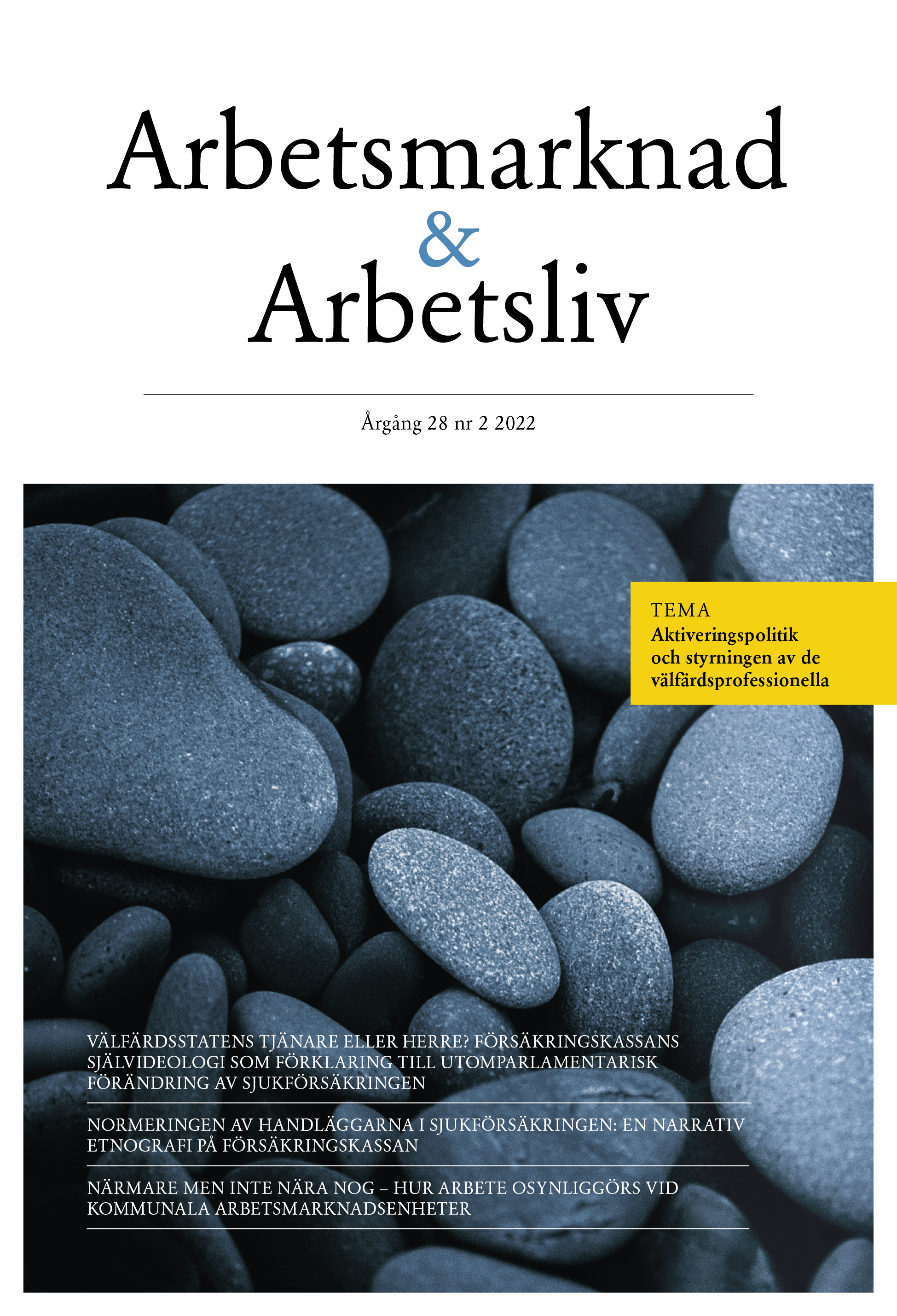Välfärdsstatens tjänare eller herre? Försäkringskassans självideologi som förklaring till utomparlamentarisk förändring av sjukförsäkringen
Keywords:
activation policy, ethos, self-ideology, social insurance system, Swedish Social Insurance AgencyAbstract
Since the first two decades of the 21st century the Swedish social insurance system has evolved in a more restrictive direction without any corresponding change in the law. Previous research has mainly focused on the government’s steering towards a sickness benefit ratio of 9.0 as an explanation to the changed enforcement of the system. Within the framework of this explanation, the activation policy has also been highlighted as a form of meta-ideology that has influenced the governance. This article argues that it’s not only the government’s control of activation policy that governs the actions of the Swedish social insurance agency, but also a specific ethos of the bureaucracy which consist of the self ideology that the agency is the lord of the welfare state, not the server. In order to explore this, the article make a distinction between two types of discretion of the bureaucracy, and argue that the change in the Swedish social insurance system is caused by a combination of the specific ethos of the Swedish social insurance agency and an idea of the contract of the relationship between the state and the citizen (the activation policy).



